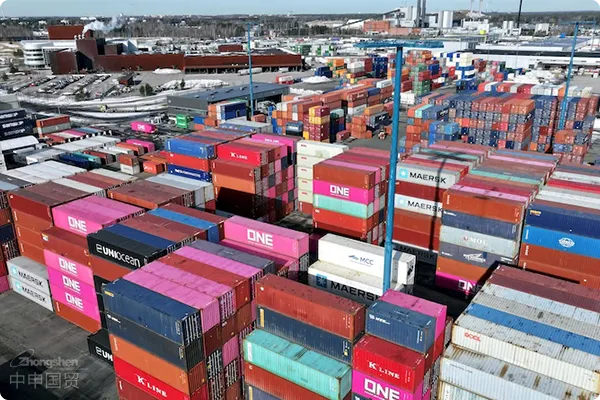- Shanghai Zhongshen International Trade Co., Ltd. - Two decades of trade agency expertise.
- Service Hotline: 139 1787 2118
Recently, ports on the U.S. East Coast and Gulf Coast may face a large-scale strike, a development that has drawn significant attention from the global trade and logistics industries. The International Longshoremens Association (ILA) has accused the United StatesMaritime TransportationMaritime Alliance (USMX) of paying workers too little and has threatened that if a new wage agreement is not reached before the contract expires on September 30, tens of thousands of union members will go on strike starting October 1.

Strike Could Affect 60% of National Shipping Volume
According to the ILA, this strike will affect dozens of ports from Maine to Texas, including five of the top 10 busiest ports in North America. A report by Oxford Economics notes that the strike could involve up to 45,000 port workers, affecting about 60% of the total U.S. shipping volume. This would cause severe disruptions to U.S. freight and significant pressure on supply chains.
Ports on the U.S. East Coast and Gulf Coast are rushing to handle deliveries for importers in hopes of clearing goods before a potential strike. However, if the strike occurs, 36 ports may close, forcing businesses to face logistical challenges in rerouting goods to other regions, further exacerbating supply chain pressures.
Supply Chain Disruptions Could Impact Multiple Industries
Jason Miller, a supply chain management professor at Michigan State University, warned that the impact of the strike depends on its duration. If the strike lasts only 24 to 48 hours, the disruption would be relatively limited. But if it lasts a week or longer, it would trigger a massive shock, with each additional day exponentially increasing the time needed to return to normal, he said.
Grace Zwemmer, Deputy U.S. Economist at Oxford University, noted in the report that even a two-week strike could disrupt supply chains until 2025. According to Bloomberg, citing expert predictions, a one-week strike could cost the U.S. economy up to $7.5 billion in losses.
Government Stance and Potential Impact
Despite speculation among experts that the Biden administration might invoke the Taft-Hartley Act to limit the duration of the strike, U.S. government officials have revealed that Biden does not intend to take this measure, likely to avoid alienating worker voters. This stance may further complicate the situation.
Among the affected industries, automotive parts and agricultural products such as bananas are bearing the brunt. Professor Miller pointed out that the automotive industry will be severely impacted, particularly with supply shortages of auto parts potentially causing difficulties in major manufacturing hubs like Michigan and Georgia. Additionally, 66% to 75% of the over 2 million tons of bananas imported by the U.S. this year enter through East Coast and Gulf Coast ports. The strike could lead to a sharp decline in banana supply and price increases.
Shipping Companies Impose Surcharges in Response to Strike
Facing potential strike risks, shipping companies are taking countermeasures. On September 24, global shipping giant Maersk announced it would impose a Local Port Disruption Surcharge on all cargo traveling to and from the U.S. East Coast and Gulf Coast regions to offset potential high costs. Earlier, companies such as Mediterranean Shipping Company (MSC), CMA CGM, and Hapag-Lloyd had also announced the addition of Emergency Operational Surcharges.
Maersk stated that even a one-week strike could have a massive impact on the supply chain, causing disruptions lasting four to six weeks. Peter Sand, Chief Analyst at shipping pricing platform Xeneta, noted that the consequences would be severe, with billions of dollars worth of goods already en route to the U.S. These ships cannot turn around or divert to other ports.
Conclusion
This strike threat highlights the fragility of global supply chains and the critical role of ports in international trade. All sectors are closely monitoring developments, hoping that labor and management can reach an agreement soon to avoid significant impacts on the U.S. and global economy. If the strike ultimately proves unavoidable, businesses and consumers will face supply shortages and price increases, and global trade chains will suffer severe shocks.
Related Recommendations
? 2025. All Rights Reserved. 滬ICP備2023007705號-2  PSB Record: Shanghai No.31011502009912
PSB Record: Shanghai No.31011502009912









